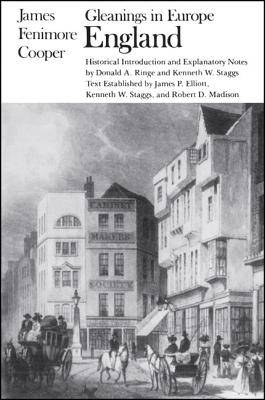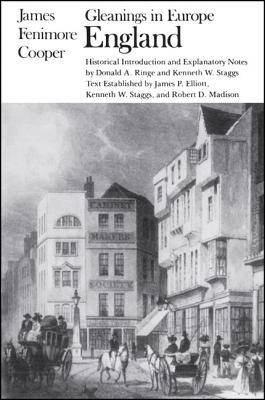
Bedankt voor het vertrouwen het afgelopen jaar! Om jou te bedanken bieden we GRATIS verzending aan op alles gedurende de hele maand januari.
- Afhalen na 1 uur in een winkel met voorraad
- Gratis thuislevering in België
- Ruim aanbod met 7 miljoen producten
Bedankt voor het vertrouwen het afgelopen jaar! Om jou te bedanken bieden we GRATIS verzending aan op alles gedurende de hele maand januari.
- Afhalen na 1 uur in een winkel met voorraad
- Gratis thuislevering in België
- Ruim aanbod met 7 miljoen producten
Zoeken
Omschrijving
A contemporaneous reviewer called James Fenimore Cooper's England "unquestionably the most searching and thoughtful, not TO say philosophical of any" of the books "published by an American on England." Another cited with approval the "potent causticity" with which a fellow reviewer "develope[d] the gangrene of the author's mind in its most foul and diseased state." Such were the extremes of response elicited by publication in 1837 of the fourth and most controversial book in Cooper's travel series, Gleanings in Europe. Partly because of his ambivalence for most things British, England is perhaps the most fascinating of the travel volumes to the modern reader. Probably no American of his time was received more hospitably by the British upper classes, nor did any reciprocate with shrewder or more scalding criticism. Cooper himself thought well of his book, taking some delight in the stir it made in London and expecting it to do much good at home. The modern reader will be delighted by his novelist's eye for the revealing scene or detail and by the multidimensional perspective he provides on British-American cultural conflicts of the 1820s and 1830s.
Specificaties
Betrokkenen
- Auteur(s):
- Uitgeverij:
Inhoud
- Aantal bladzijden:
- 375
- Taal:
- Engels
- Reeks:
Eigenschappen
- Productcode (EAN):
- 9780873953672
- Verschijningsdatum:
- 30/06/1981
- Uitvoering:
- Hardcover
- Formaat:
- Genaaid
- Gewicht:
- 698 g

Alleen bij Standaard Boekhandel
+ 290 punten op je klantenkaart van Standaard Boekhandel
Beoordelingen
We publiceren alleen reviews die voldoen aan de voorwaarden voor reviews. Bekijk onze voorwaarden voor reviews.












